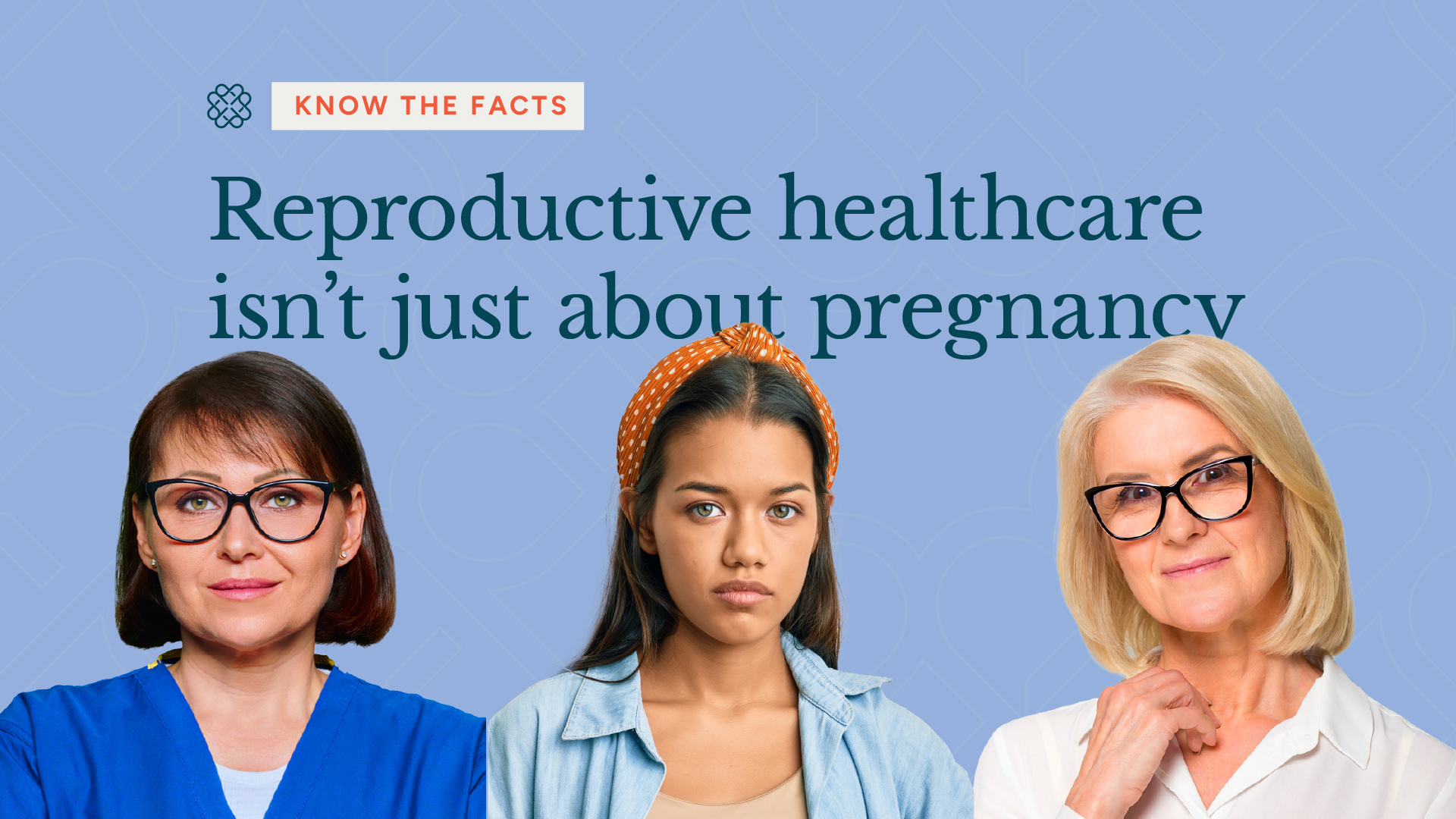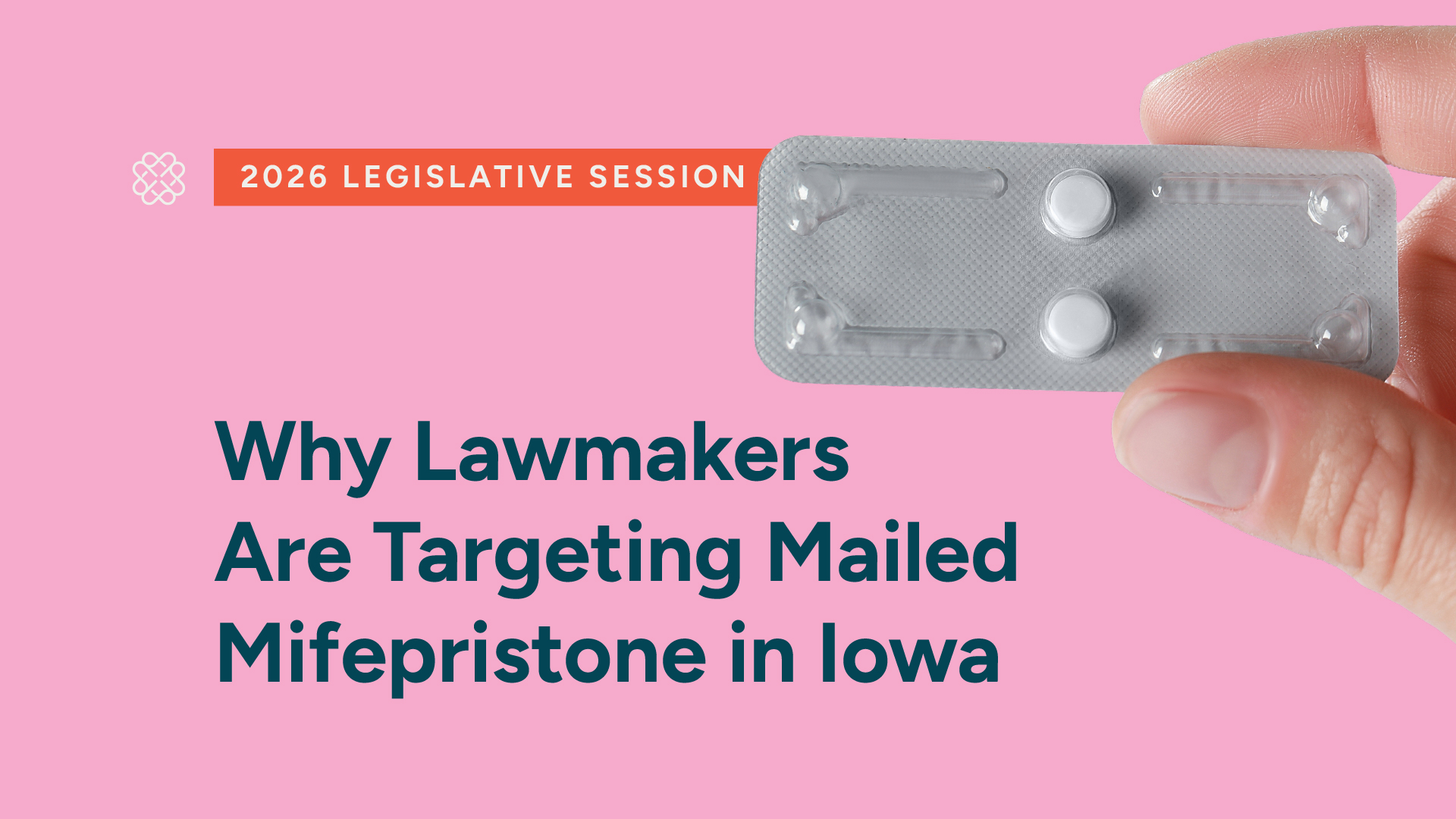
Reproductive healthcare isn’t just about pregnancy or abortion, it is about lifelong care and women’s healthcare rights across every stage of life.
When people hear the words reproductive healthcare, many immediately think of pregnancy or abortion. But that’s just one part of a much bigger picture. Reproductive care is lifelong healthcare, touching nearly every stage of a person’s life—whether or not they ever plan to have children.
In Iowa, as access to care narrows, it’s critical to understand what’s really at risk.
What falls under reproductive healthcare?
Reproductive health includes a broad range of essential services that affect people of all genders and ages. These services are key to overall health, early detection of serious conditions, and long-term wellbeing.
Here’s what reproductive healthcare really includes:
- Cervical cancer screenings (Pap smears) and HPV testing
- Breast exams and mammograms
- STI testing, prevention, and treatment
- Menstrual disorder diagnosis and management (e.g., endometriosis, PCOS, fibroids)
- Contraception and birth control counseling
- Fertility support and infertility treatment
- Pregnancy care and prenatal services
- Perimenopause and menopause care
- Gender-affirming care for trans and non-binary individuals
- Surgeries such as hysterectomies or tubal ligation
Many of these services are delivered by OB/GYNs or clinics now struggling to stay open due to staffing shortages, funding issues, or hostile legislation.
Why this matters in Iowa
Iowa ranks last in the nation for OB/GYNs per capita. In many counties, people have to drive hours for a Pap smear, a cancer screening, or to refill their birth control. As access continues to decline, so does early detection and prevention of life-threatening conditions.
- Over 68,000 women in Iowa live in a county with no OB/GYN
- 57% of Iowa counties lack obstetric services
- Source: OBGYN Power – Loss of Access in Iowa
When clinics close, it’s not just abortion services that disappear, it’s cancer screenings, STI tests, contraception refills, and care for everyday health concerns. And when patients delay or go without that care, outcomes worsen and costs rise.
The ripple effect: care delayed is care denied
For many Iowans, particularly in rural areas, reproductive healthcare is already out of reach. And when that happens, patients are more likely to:
- Miss critical early diagnoses for cancer or infections
- Experience chronic pain from untreated conditions
- Become pregnant despite not being ready or able
- Face higher medical costs due to delayed care
This isn’t just about rights—it’s about access to basic, preventive care that helps people live healthy, productive lives.
The bottom line
Reproductive healthcare is not just about pregnancy or abortion. It’s about cancer screenings. Preventative medicine. Hormonal care. It’s about people having access to doctors who listen and treat their whole health—not just their reproductive status.
As Iowa faces growing healthcare deserts, it’s more important than ever to fight for policies that expand—not restrict—access to these services.
Because reproductive care is healthcare. And healthcare is a human need.
For more reproductive rights information and updates on Iowa healthcare access, visit our resources page or sign up for our newsletter.
Empower change.
Sign up for our newsletter and stay informed on reproductive healthcare issues in Iowa.




